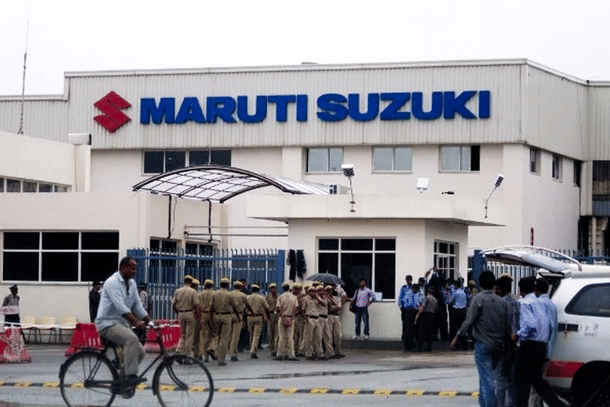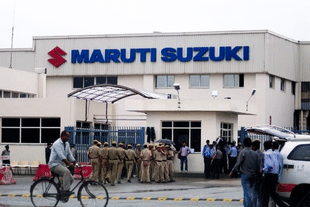News Brief
Maruti Suzuki Will Raise Prices In September Due To Increase In Input Costs
Bhaswati Guha Majumder
Aug 30, 2021, 06:11 PM | Updated 06:11 PM IST
Save & read from anywhere!
Bookmark stories for easy access on any device or the Swarajya app.


Due to rising input costs, Maruti Suzuki is planning to raise the costs of its vehicles beginning in September this year. The announcement was made on 30 August in a regulatory filing by India's largest car manufacturer which earlier hiked prices in April and July.
Maruti Suzuki India (MSIL) said in a stock exchange filing: “We wish to inform you that over the past year the cost of the company's vehicles continues to be adversely impacted due to an increase in various input costs. Hence, it has become imperative to pass on some impact of the additional cost to the customers through a price rise.”
The New Delhi-based carmaker also stated that the price hike has been planned across models in September. Maruti Suzuki has not specified the rate of these hikes, which will go into effect next month.
Maruti announced a price increase for the Swift and all CNG variants in July due to an increase in various input costs. The above models have seen an increase in ex-showroom prices (Delhi) of up to Rs 15,000. The new prices go into effect today, according to the company. Currently, the company sells a variety of vehicles, ranging from the entry-level hatchback Alto to the S-CROSS, with costs ranging from Rs 2.99 lakh to Rs 12.39 lakh (ex-showroom prices, Delhi).
In July and August, other Indian automobile makers like Tata Motors, Honda Cars, Mahindra & Mahindra, Renault and Toyota all upped their pricing. The increases were implemented to compensate for rising raw material costs, such as steel and precious metals.
Additionally, Tata Motors expressed its concerns about the rising cost of raw materials. As reported by Bloomberg Quint, PB Balaji, who is the chief financial officer at Tata Motors Group, said: “It [raw material cost] is becoming very, very painful. Prices right now are moving so fast that we are not able to process it.” According to Balaji, vehicle costs have increased by 14 per cent in the last year across all categories due to engine upgrades to meet lower emission standards (BS-VI or Bharat Stage VI), while another 6-7 per cent increase in price is due to higher steel costs.
Tata Motors has raised rates three times thus far but has yet to recoup the full cost increase. Balaji added that “we have taken 6 per cent price increase already. I think we are still losing at least 350-400 basis points of the margins because we are not able to pass-on hike in the price of steel." According to him, the manufacturer will have to raise prices another 5 per cent to compensate for the increased steel price.
However, as per research released by rating and market intelligence firm ICRA, commodity prices are likely to remain at multi-year highs in the first half of FY22 (resulting in a multi-year high average in FY22), before weakening in the second half of the year.




